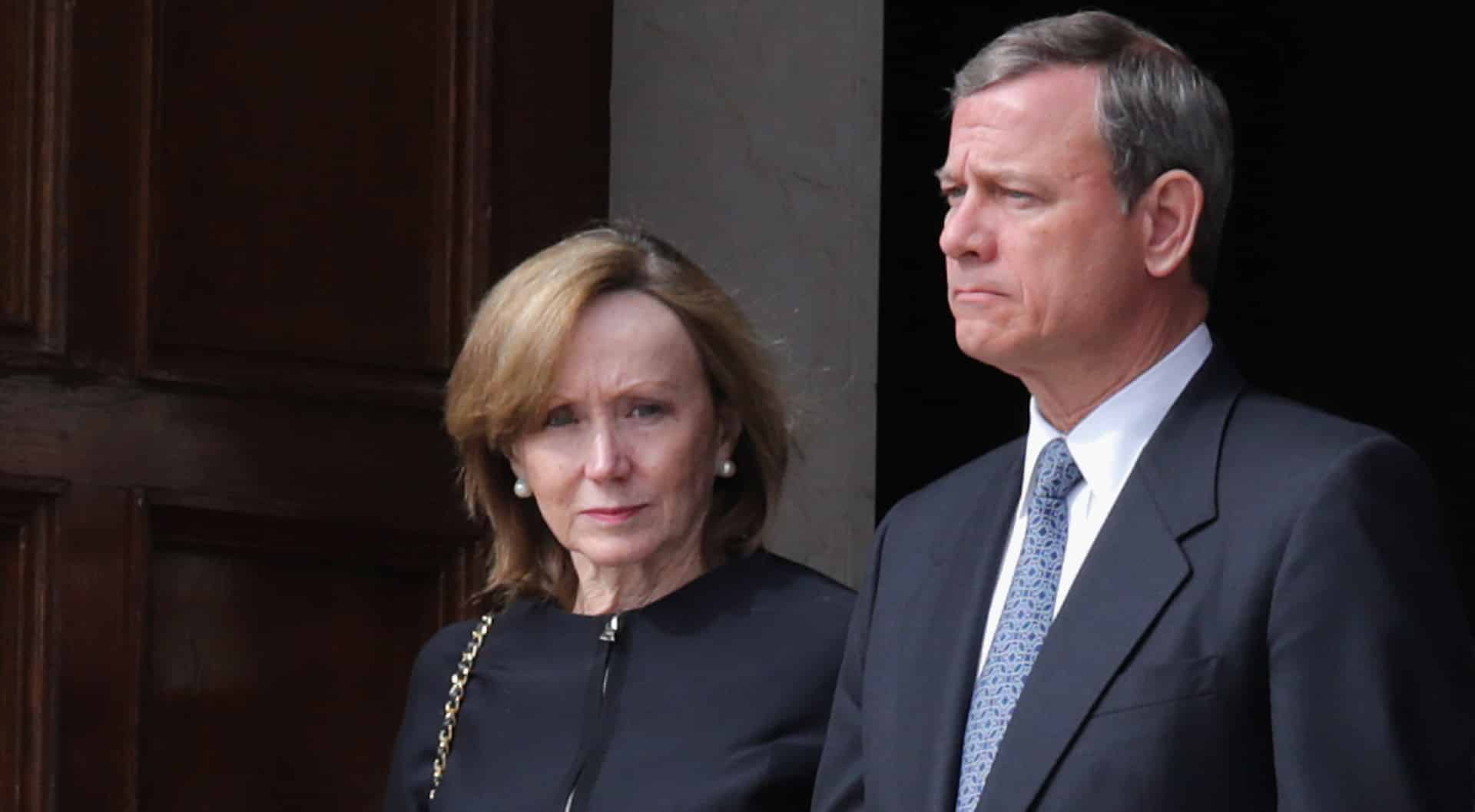OPINION: This article may contain commentary which reflects the author's opinion.
The wife of Supreme Court Chief Justice John Roberts is potentially facing an ethics probe from the Biden Justice Department, according to a report on Tuesday.
A former colleague of Jane Sullivan Roberts has requested the inquiry after claiming that she was paid millions of dollars in commissions to get lawyers hired on at firms, some of which have cases before the nation’s highest court, a letter leaked to The New York Times says.
“After Chief Justice John G. Roberts Jr. joined the Supreme Court, his wife, Jane Sullivan Roberts, gave up her career as a law firm partner to become a high-end legal recruiter in an effort to alleviate potential conflicts of interest. Mrs. Roberts later recalled in an interview that her husband’s job made it ‘awkward to be practicing law in the firm,'” the Times report said, adding:
In his letter last month, Kendal Price, a 66-year-old Boston lawyer, argued that the justices should be required to disclose more information about their spouses’ work. He did not cite specific Supreme Court decisions but said he was worried that a financial relationship with law firms arguing before the court could affect justices’ impartiality or at least give the appearance of doing so.
“I do believe that litigants in U.S. courts, and especially the Supreme Court, deserve to know if their judges’ households are receiving six-figure payments from the law firms,” Price noted.
Both Roberts and Price once worked together as legal recruiters for a Maryland-based firm called Major, Lindsey & Africa. Price was fired in 2013 and filed a lawsuit against the firm, Jane Roberts, and another executive after he was dismissed, the Times noted.
His suit was not successful. However, documents pertaining to the case show that commissions were paid to Jane Roberts between 2007 and 2014. Six-figure fees that were credited to her for placing partners at firms included a 2012 payment of $690,000 for one hire.
Jane Roberts, per a 2015 deposition in the suit, noted that a great deal of her practice had to do with assisting senior federal government attorneys in finding jobs at law firms and that their names were hardly ever disclosed.
“I keep my placements confidential,” she said during her deposition, the Times reported.
The Washington Examiner adds:
Jane Roberts, who now works at Macrae out of Washington, D.C., previously said that she handled conflicts on a case-by-case basis, taking care to avoid matters with any connections to the chief justice’s work and refraining from working with lawyers that had active Supreme Court cases.
Patricia McCabe, spokeswoman for the Supreme Court, said in a statement to the New York Times that all justices were “attentive to ethical constraints” and complied with financial disclosure laws.
McCabe said the chief justice and his wife consulted the code of conduct for federal judges and an advisory opinion from 2009. The opinion said a judge “need not recuse merely because” their spouse had worked as a recruiter for a law firm with issues before the court.
John Roberts has never recused himself from a case since he’s been on the Supreme Court, the Examiner noted.
In his annual financial disclosures, the chief justice listed his wife’s employers but he did not list her earnings or her clients. Rather, he gave a short description of “attorney search consultants — salary.” Price wrote in his letter, however, that the description can be murky and even misleading since salaries are “guaranteed and steady” while commissions “depend on cultivating and capitalizing on relationships in order to consummate particular deals.”
Not surprisingly, the Democratic chairman of the Senate Judiciary Committee, Dick Durbin of Illinois, noted in a statement that the letter raises “troubling issues that once again demonstrate the need” for ethics reforms in order to “begin the process of restoring faith in the Supreme Court.”
“Public confidence in the court recently fell to a historic low, polls showed, and Democrats in Congress have called for greater transparency, including stronger disclosure and recusal standards. The Justice Department declined to comment,” the Times noted.
